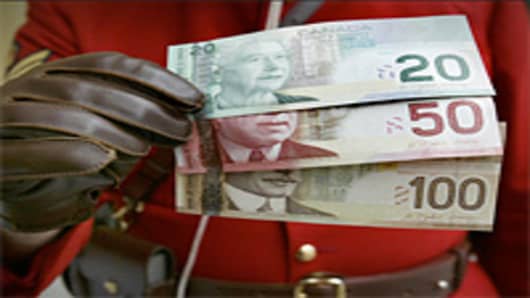From Portugal to Ireland, nothing has dented the euro's surprising strength. And in Canada, even a no-confidence vote hasn't really jarred the Canadian dollar . Here's how to trade them.
You would think that something—a meeting of European leaders, or a collapsing Portuguese government, or conflicting demands from Ireland and Germany—would have dented the euro this past week. But other than some mild fluctuations, the single currency sailed through a very eventful five days, said Rebecca Patterson, global head of currencies and commodities for J.P. Morgan's private bank.
"The story with the euro this week wasn't that it had a big move. It was that it didn't do anything despite all the news," Patterson told CNBC's Melissa Lee.
Why the resilience? Traders are expecting significant interest rate hikes this year—Patterson said the market has priced in 100 basis points of increases—and economic indicators for the region are gradually improving. The bottom line: just about any news seems to be good news for the euro, at least right now.




